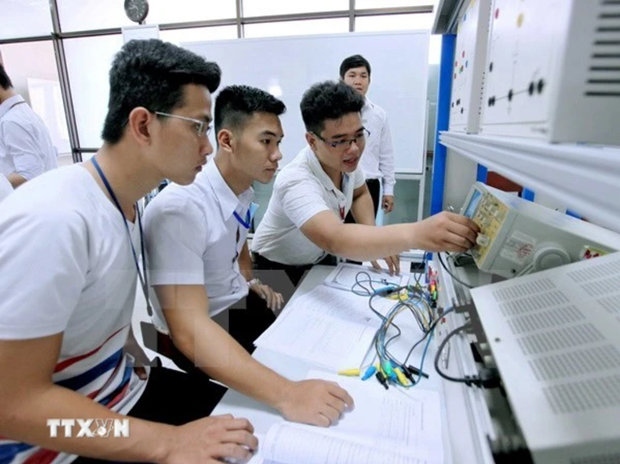
|
Getting your Trinity Audio player ready...
|
Vietnam stands at a critical juncture in its digital evolution, marked by ambitious initiatives under the National Digital Transformation Programme aimed at modernising various facets of society. However, this ambitious agenda is accompanied by a pressing challenge: a notable shortage of skilled human resources in the information and communication technology (ICT) sector.

Over the past two decades, Vietnam has witnessed a remarkable expansion of its ICT workforce, with numbers exceeding one million individuals and contributing substantially to the country’s GDP. Yet, as the nation embarks on its digital transformation journey, the demand for skilled ICT professionals has surged to unprecedented levels, underscoring the urgency of bridging the existing workforce gap.
The forecasted need for 2.5 million ICT personnel by 2030 to facilitate Vietnam’s digital transformation underscores the imperative for robust ICT human resources training initiatives. Despite the presence of approximately 1.5 million workers in the ICT field and a significant number of educational institutions offering ICT training, a glaring disparity persists between the skills possessed by graduates and the evolving demands of the digital economy.
A survey conducted by TopDev has revealed that a mere 30% of graduates meet the proficiency levels sought by employers, necessitating interventions to enhance skills alignment and optimise talent utilisation.
Furthermore, Vietnam’s ICT sector grapples with global workforce trends, as evidenced by rapid personnel reductions observed in recent years. The industry’s landscape is characterised by dynamic shifts driven by technological advancements and economic dynamics, accentuating the need for agile skill development strategies to ensure workforce resilience.
Against this backdrop, specialised skill sets such as artificial intelligence (AI) and cloud computing have emerged as focal points for talent development initiatives, reflecting industry priorities and market demands.
In response to these multifaceted challenges, concerted efforts are underway to elevate the quality and relevance of ICT education and training in Vietnam. Initiatives include the piloting of innovative digital higher education models, the integration of internationally recognised certification programmes, and the optimisation of training curricula to align with industry requirements.
Moreover, strategic collaborations between educational institutions and industry stakeholders are fostering a culture of continuous learning and skills enhancement, empowering ICT professionals to navigate the evolving job market landscape effectively.
Simultaneously, the Ministry of Information and Communications (MIC) is spearheading initiatives to stimulate demand for digital human resources and foster a conducive ecosystem for digital innovation and entrepreneurship. By promoting cross-sectoral digital transformation initiatives, supporting the growth of strategic industries such as semiconductors, and facilitating the global expansion of digital technology businesses, Vietnam aims to position itself as a regional leader in digital transformation.
Vietnam’s journey towards digital transformation hinges on its ability to address the pressing challenges posed by the ICT workforce shortage. By prioritising talent development, fostering industry-academia partnerships, and driving forward-looking policy interventions, Vietnam is poised to unlock the full potential of its digital economy and emerge as a trailblazer in the global digital landscape.
As Vietnam positions itself as a digital destination on the global stage, addressing the skills gap becomes increasingly urgent to ensure the nation’s competitiveness and sustained growth in the digital economy. The MIC has taken the lead in facilitating Vietnam’s digital technology firms to expand globally, recognising the favourable environment and significant growth prospects.
OpenGov Asia reported that, in line with its initiative to bolster digital firms initiated in February 2023, the MIC organised a second conference on global digital cooperation, reaffirming its commitment to fostering Vietnam’s digital ecosystem.
Minister Nguyen Manh Hung emphasised the pivotal role of Vietnamese tech firms in advancing the nation towards high-income status, stressing the importance of global expansion for Vietnam’s economic progress. He encouraged firms to adopt a distinctively Vietnamese approach to enter international markets, assuring them of unwavering support from the ministry and state agencies.
















